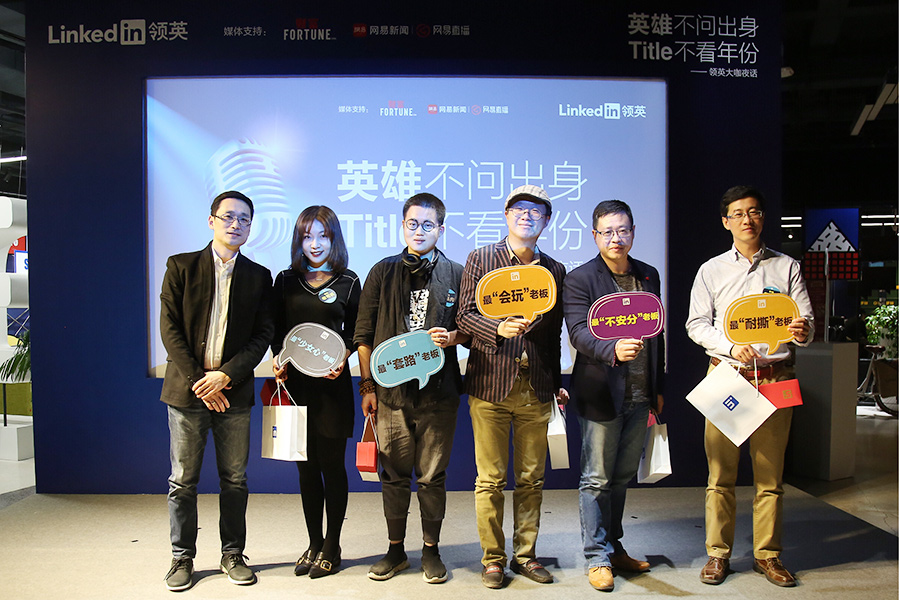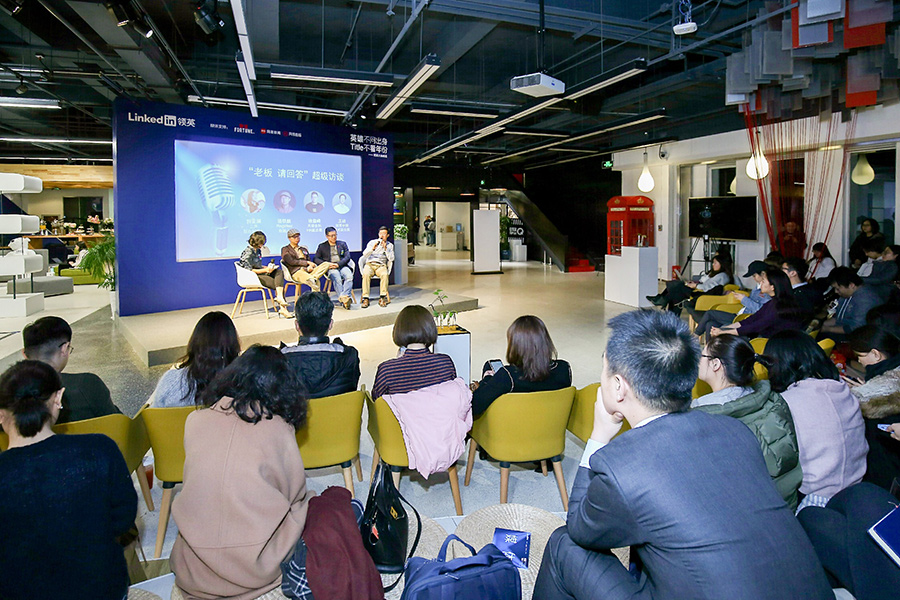LinkedIn: Young, influential decision-makers abound in mainland


Professional networking website and app LinkedIn has said China has millions of millennial "decision-makers".
In a report released early this month, LinkedIn found more than half of what it defines as "decision-makers" among its Chinese users are millennials, people aged 18 to 38.
That means a total of 2.7 million of its Chinese users hold positions higher than supervising director-LinkedIn's definition of "decision-makers".
LinkedIn analyzed 546 million employees worldwide, and discovered nearly 40 million of them take a post higher than director's.
According to the report, 28 percent of decision-makers are millennials worldwide, compared with 50 percent in China.
"Millennials have become the biggest group in the Chinese labor market," said Huang Lei, public relations manager of LinkedIn China, at a news conference in Beijing. "With more of their voices heard and skills showed, we wanted to figure out how they perform as leaders."
Different from those born in the post-1960s or 1970s generation, young CEOs seem to have their own philosophy of management.
Hu Xinshu, 26, who founded a media company, said she did not want to act like a boss to win respect from employees. "Many people, including my father, told me that the first step toward setting up a company is to build stateliness. But I think it's a misunderstanding."
Hu organized a party recently for her team of about 20 members. They were encouraged to speak out, express discontent and complain.
"They said I was stingy, that I always missed the deadlines and didn't give 'red envelopes' (cash gifts via virtual media)," she said.

She also said it was very important to form an equal, open and relaxing atmosphere in the office, in a bid to inspire new ideas, make correct decisions and guide the company to the right path.
Hu was initially just an ordinary blogger writing about romance, cosmetics and makeup. But she was so popular that she won over more than 1 million fans online. Then her blog attracted advertising and now earns about 10 million yuan ($1.58 million) per year from around 500 advertisers.
Leadership has been listed among top five buzzwords in resumes over three consecutive years, according to another report from Linked-In.
Rodney Jones, sociolinguistics professor of the University of Reading in the United Kingdom, said companies are becoming less hierarchical-even junior members are expected to demonstrate leadership.
"In contrast, the word 'organized' fell out of the top ten after 2015 as professionals search to demonstrate management capabilities over more functional attributes."
Zhang Tianyi, 28, CEO of Funiutang, a beef and rice noodle brand whose estimated value has reached about 100 million yuan, said he almost forgot he was one of the post-1990s generation.
"Despite my round and young face, deep down, I feel I'm one of the many middle-aged men who struggle to run their small or micro businesses," he said.
Zhang said during many business-related occasions, he would wear formal clothes, speak slowly and lower his voice, pretending to talk and behave like older men, to gain trust from investors or business partners.
"Many people still hold the stereotype of post-1990s CEO as creative, energetic, open-minded, but also hasty to make decisions and not so reliable."
To manage a company with about 300 to 400 employees, Zhang said he wanted to make himself simple, safe and faithful.
According to the report, millennials tend to have more interest in financing, non-profit and medical industries, dominating posts which demand high creativity and communication abilities, including administration, artistic design, marketing and social services.
That is not to say, non-millennials don't play key roles in their posts that require experience and specialization, including quality management, engineering, research and purchasing.
Still, young people are quicker to get promoted, the report said.
"It generally takes four years for an employee from the 1990s generation to become a decision-maker in companies while that may take 10 years for people from the post-1960s and 1970s generation," Huang said.
Zhang said: "Under the guillotine of business and market, no one will try to judge you by your age, whether you are born in the 1960s, 1970s, or 1990s and 2000s. There are only two types of people here-survivors and failures."




































